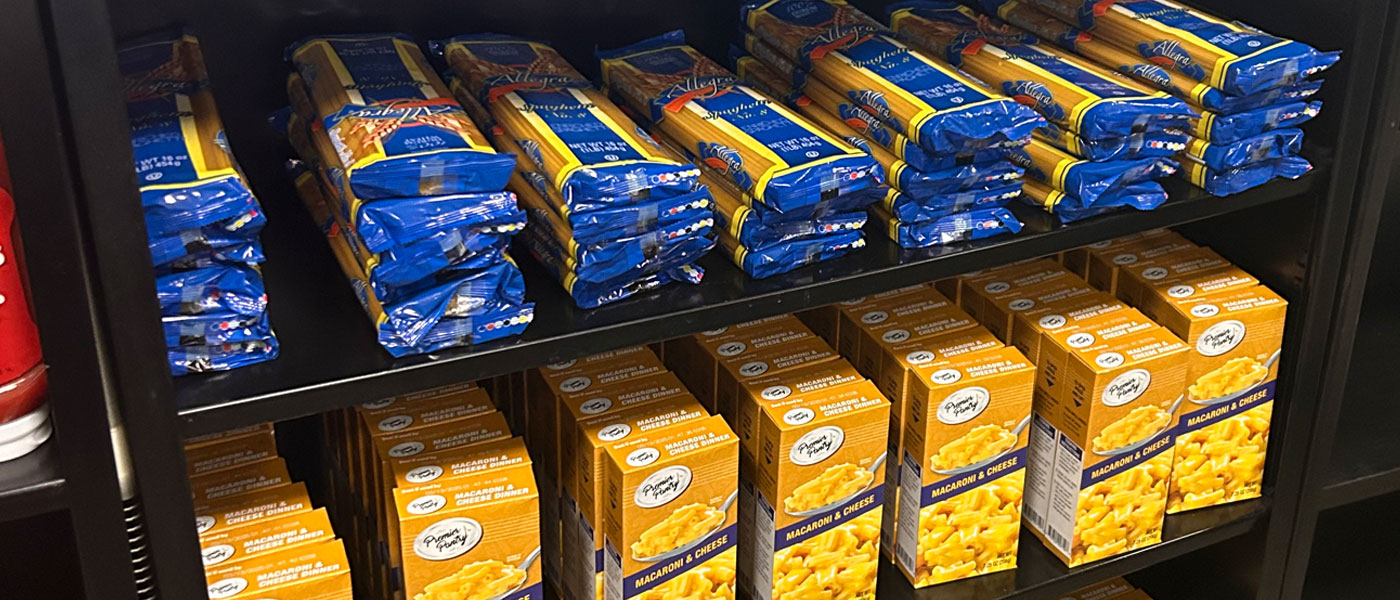Last month, Case Western Reserve University’s Physical Resource Center (PRC) formalized a partnership with the Greater Cleveland Food Bank (GCFB), aiming to address the growing issue of food insecurity on campus and extend support to the wider community.
The partnership—which officially kicked off Jan. 29 with a delivery of 1,200 pounds of food to the PRC—will include monthly food deliveries from the GCFB, including items such as frozen meals, chicken, rice, pasta, soups, milk, shredded cheese and more. The center also will maintain a stock of fresh produce through weekly scheduled pick-ups, and continue to host GCFB’s mobile food pantries each semester to distribute the nutritious items from the Food Bank.
“Partnering with the Greater Cleveland Food Bank allows us to purchase more food at significantly lower costs and purchase more fresh food products,” said Allison Gillis, associate dean of students. “It also gives us access to additional GCFB resources such as cooking classes, SNAP outreach, grant opportunities and more.”
In a recent move, the PRC’s reach expanded beyond just students to include faculty, staff and the wider Cleveland community. Anticipating an influx of visitors who face food insecurity, the PRC predicts a substantial increase in the amount of food served—from 4,000 pounds to well over 15,000 pounds annually.
“Working more closely and collaboratively with our community has been an ongoing mission for CWRU, and this is just one step closer towards that,” said Gillis. “The most exciting part of this partnership is our ability to provide our students, faculty, staff and community members with safe and nutritious food for free, and knowing the impact that will have.”
Originally established in 2020 to provide access to essential items like clothing, kitchenware and books, the PRC has since witnessed increasing demand for food resources. This prompted a shift in focus toward creating a more extensive food pantry offering a variety of food selections, hygiene products and cleaning items.
Gillis—along with Helen Dumski, an adjunct faculty member in the Department of Nutrition, Marc Hartmann, director of student activities and leadership, and Ayowole Ajiboye, a graduate assistant for the Physical Resource Center and graduate student in the Jack, Joseph and Morton Mandel School of Applied Social Sciences—spent last semester reviewing policies and protocols, gaining support from university stakeholders, and gathering the documents needed to make the GCFB partnership a reality.
In addition to the support provided by GCFB, the PRC still accepts donations—both financially and in-kind. They are also in need of dedicated volunteers to help with stocking, inventory and cleaning. Those interested in volunteering or donating can contact Allison Gillis at axg1347@case.edu.


